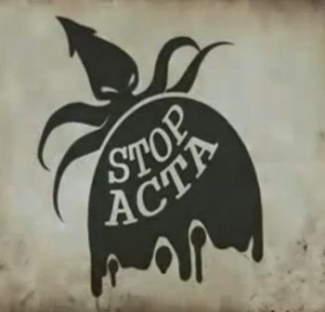Help mee ACTA slopen
Het is geen gewoonte om oproepen van politici 1 op 1 door te zetten, maar voor europarlementariër Marietje Schaake maken we in dit geval een uitzondering. Wat is er aan de hand? Vandaag werd bekend dat het internationale anti-piraterij verdrag ACTA door de Europese Commissie is goedgekeurd. Dit verdrag – dat net zo schadelijk is als de zojuist afgeschoten SOPA en PIPA-wetgeving in de VS – is in achterkamertjes bedisseld. We weten ongeveer wat erin staat (sargief), maar geen der onderhandelingspartijen is bereid om de informatie met het grote publiek te delen. Hoe zou het toch komen dat de burger weinig vertrouwen heeft in de politiek?

Om deze hufterige machtsgreep op ons geliefde interwebs te voorkomen, moet er toch echt wat gebeuren. Door ons. Een meerderheid van onze volksvertegenwoordigers maalt er niet om. Hieronder daarom de oproep van Marietje Schaake en wat jij als internetter kunt doen om te helpen. Na de doorlees haar oproep en ook nog even een kort filmpje om je geheugen op te frissen.
UPDATE: hier een overzichtelijke lijst met mailadressen, te copypasten
Wat Bits of Freedom zegt dat je kunt doen.
{youtube}dmQN93NqqDM{/youtube}
Brief EP-lid:
,,As a Member of the European Parliament (EP), I am concerned about the ACTA treaty in the international trade committee (INTA). Please find some information about the procedure of the ACTA treaty in the EU, especially the EP, below. You can reach me on Twitter via @marietjed66, where I will also post a message about this post.
The internet blackouts by thousands of websites last week in protest of the Stop Online Piracy Act (SOPA) and the Protect Intellectual Property Act (PIPA) have raised lively discussions. Not only in the US but also in the EU the question is how to balance or reform copyright laws whilst preserving an open internet.
The success of the protests against SOPA and PIPA has also given the internet community quite a confidence boost. How will this development influence future legislative proposals? The Anti-Counterfeiting and Trade Agreement (ACTA) is the next controversial treaty which may be about to become law. This is an international trade agreement which aims to halt counterfeited products, but also affects the internet. Already massive protests have taken place on the streets of Poland against ACTA.
A wide range of NGO’s, scholars, civil society organisations, engineers, industry and activists have expressed concern about the impact ACTA will have on online freedom and freedom of speech. But there are also serious questions about access to medicine and the fact that ACTA may violate international law. Certainly, the lack of transparency of the negotiations has made it very difficult for both civil society and the European Parliament to monitor the drafting process.
The European Commission and Member States will sign ACTA on Thursday January 26th in Japan. However, the European Parliament has a decisive voice on ACTA. It can determine whether the EU ratifies the treaty or not. Ratification means the treaty will actually be enacted; the signature itself is not legally binding but expresses intent and agreement on the text.
Next steps
The European Parliament has the decisive voice on ACTA and the INTA committee has the lead. Other committees will be developing their opinions on ACTA in the coming months. You can find some more information about the procedures and relevant committees on this official EP website
The 1st exchange of views on ACTA in the INTA committee is scheduled for either the 29th of February or the 1st of March. The committee will then most likely vote on the ratification of the treaty in April or May.
After that, the most important vote will be during the Strasbourg plenary session on June 11th to 14th, where all MEPs will be able to vote on ACTA. (Please note that these dates may change). If the majority of MEPs vote in favour of ratification ACTA will be ratified by the EU.
So what can we do to stop ACTA?
If you are concerned about ACTA, you can convince the EP to vote against ACTA. In November 2010 we proposed an alternative resolution on ACTA, which intended to take away the main concerns. It was voted down by a very slight majority, please see here (the red section represents MEPs voting against our resolution). As you can see, the difference is only 16 votes, out of 736 (or 754 as it stands now). Another text was then voted in favour, which said the Commission should carry on its negotiations.
If you are concerned about ACTA, contact MEPs (from your country of political party), especially targeting the ones who are in the committees who will vote on ACTA in the coming months. You can find their email addresses on the EP website. Perhaps it won’t have to come to a blackout!
I will organise a hearing in April, where parties that will be affected by ACTA can give their opinion. This meeting will be live streamed. If you wish to be informed about this, please send me an email: marietje.schaake-office@europarl.europa.eu.
I believe internet offers tremendous opportunities to bring makers of music, film and other cultural content closer to audiences at lower prices. However, while Europe offers the most attractive and diverse content in the world, much of it is locked behind fragmented copyright laws. Instead of focusing on enforcement, we must focus on reform, while keeping in mind that it is not the government’s job to preserve certain business models against the forces of the free market.
TL;DR: Important dates for ACTA in the European Parliament:
– 29 February/1 March: Discussion in international trade committee,
– April or May: Vote in international trade committee,
– 12, 13 or 14 June: Final vote in plenary (most important vote).
(Please note, all dates may be changed)”